#Sysk
Explore tagged Tumblr posts
Text
Great time to remind people irl historical luddites didn't burn down factories bc "hurr durr technology bad" but bc industrialization put independent craft artisans out of business by allowing corporations to mass produce cheaper shittier versions of goods. really makes you think 🤔🤔🤔
#this is mainly about ai discourse but its also about other things#shoutout to luddites fr tho#anti ai#us politics#luddite#sysk
9 notes
·
View notes
Text
Stuff You Should Know did a shortie on this!
youtube
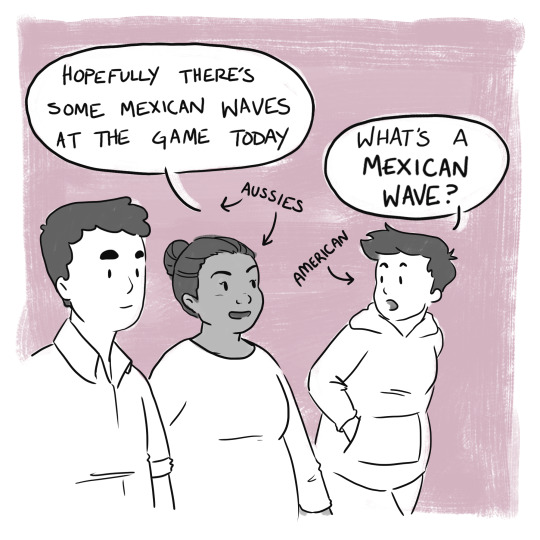
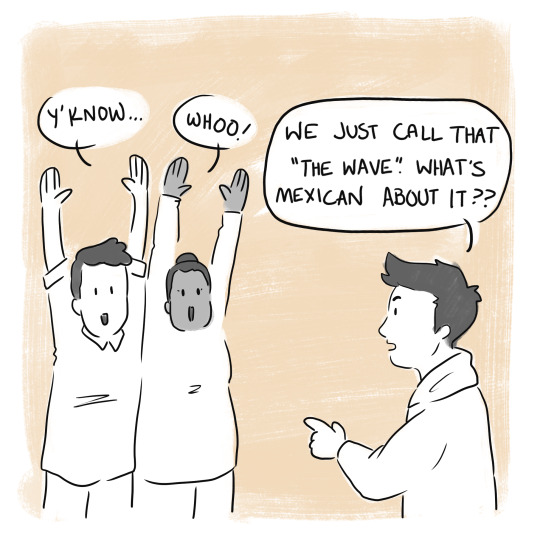
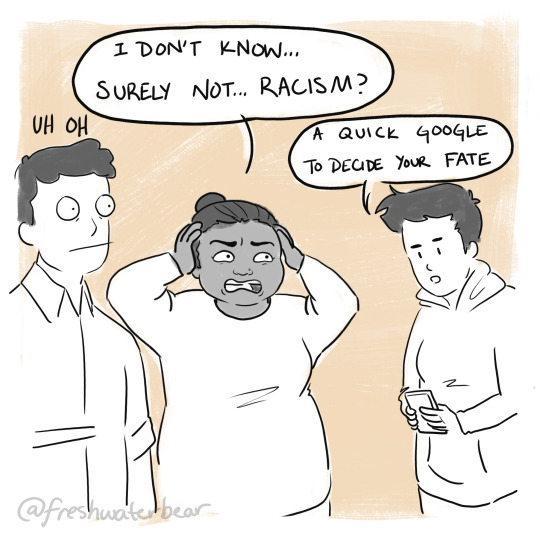
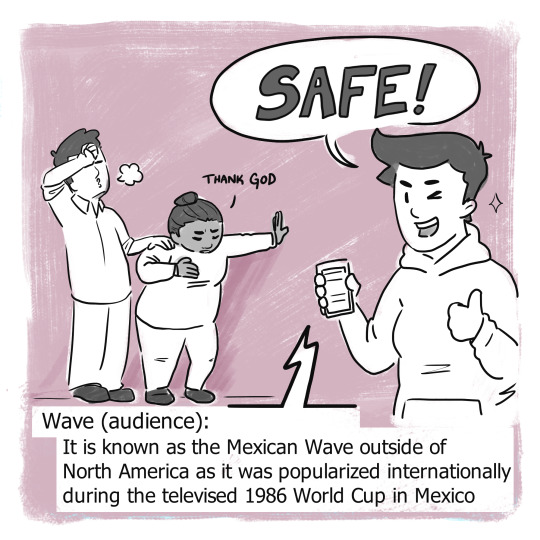
visit the wiki page for wave (audience) for more fun facts!
24K notes
·
View notes
Photo

stuff you should know
0 notes
Text
Having trouble listening to the ADHD episode of SYSK cuz I can't put it on 1.5 speed does that count as irony
#i-really-should-change-my-url-original#adhd#sysk#stuff you should know#irony#ironic#alanis morissette
0 notes
Text
you tell a bitch to keep their cat indoors and suddenly their town is the first in the world to have eradicated every viral, bacterial and parasitic disease, they invented completely harmless cars, dogs and predators dont exist either but somehow the native songbird population is fine since the cats in this place have lost the hunting instinct, there's no pollutants or toxic plants and human cruelty has ceased to exist. and mr mittens has a chip in his brain that will explode if he doesnt go outside 10 hours of the day
#I have never had outdoor cats#but I did not know how not good it was until I listened to this episode!#sysk
58K notes
·
View notes
Text
GRISELDA POLLOCK
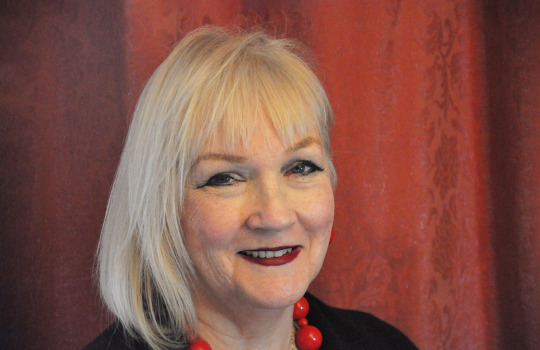
Vendredi 14 juin à 18h (heure de Paris)
Friday June 14th 2024, 6pm (Paris time)
@ MSH, 16 – 18 RUE SUGER, 75006 (métro Odéon ou St – Michel)
Griselda Pollock est l’une des figures les plus impressionnantes de celles qui, depuis les années 1980, ont révolutionné l’histoire de l’art en la soumettant au questionnement féministe. Bien au-delà de la question désormais classique du « canon » de l’histoire de l’art, c’est à une réélaboration radicale du cadre même de la discipline, informée par la théorie politique, la psychanalyse et l’anthropologie, qu’elle a consacré une vingtaine d’ouvrages qui sont aujourd’hui considérés comme incontournables parmi lesquels Vision and Difference: Feminism, Femininity and the Histories of Art (1988), Differencing the Canon: Feminist Desire and the Writing of Art's Histories (1999), Encounters in the Virtual Feminist Museum: Time Space and the Archive (2007), After-Affects I After-Images: Trauma and Aesthetic Transformation in the Virtual Feminist Museum (2013). Au fil des années 2000, Pollock a déployé un riche programme de recherche, à la fois personnel et collectif, sur le trauma, la représentation après la Shoah, la mémoire et le cinéma. Charlotte Salomon and the Theatre of Memory, publié en 2018, se situe à la convergence de ces deux perspectives. Professeure à l’université de Manchester (1974-1977) puis à celle de Leeds (à partir de 1977), Pollock a dirigé le Centre for Cultural Analysis, Theory and History (CATH) de l’université de Leeds. En 2020 elle a obtenu le plus prestigieux prix international pour les sciences humaines, le prix Holberg "pour ses contributions révolutionnaires à l'histoire de l'art féministe et aux études culturelles". En 2023, traçant les grandes lignes d’une approche entièrement renouvelée de l’historiographie, elle a dirigé un volume d’études consacrées à Helen Rosenau, historienne de l’art et de l’architecture, autrice du pionnier Woman in Art : From Type to Personality (1944). Aujourd'hui paraît enfin en français le classique des classiques, sa première intervention féministe dans l’histoire de l’art, Maîtresses d’autrefois. Femmes, Art et Idéologie qu’elle publia avec Rozsika Parker en 1981.
[EN] Giselda Pollock is one of the most impressive figures among those who, since the 1980s, have revolutionised the history of art by subjecting it to feminist questioning. Far beyond the now classic question of the art-historical “canon”, she has devoted some twenty books to a radical re-elaboration of the very framework of the discipline, informed by political theory, psychoanalysis and anthropology. These include Differencing the Canon: Feminist Desire and the Writing of Art's Histories (1999), Vision and Difference: Feminism, Femininity and the Histories of Art (2003), Encounters in the Virtual Feminist Museum: Time Space and the Archive (2007), After-Affects I After-Images: Trauma and Aesthetic Transformation in the Virtual Feminist Museum (2013). Over the 2000s, Pollock deployed a rich, personal, and collective program of research on trauma, representation after the Shoah, memory and cinema. Charlotte Salomon and the Theatre of Memory, published in 2018, lies at the convergence of these two perspectives. Professor at the University of Manchester and then at Leeds University, Pollock directed the Centre for Cultural analysis, Theory and History at Leeds University. In 2020, she was awarded the most prestigious international prize for the humanities, the Holberg Prize “For her groundbreaking contributions to feminist art history and cultural studies”. In 2023, outlining an entirely new approach to historiography, she edited a volume of studies devoted to Helen Rosenau, art and architecture historian and author of the pioneering Woman in Art: From Type to Personality (1944). Todday, the classic of classics, Old Mistresses: Women, Art and Ideology, her first feminist intervention in history published with Rozsika Parker in 1981, is finally published in French.
Programmation et prochains rendez-vous sur ce site ou par abonnement à la newsletter : [email protected]
Pour regarder les séminaires antérieurs : http://www.vimeo.com/sysk/
Séminaire conçu et organisé par Patricia Falguières, Elisabeth Lebovici et Natasa Petresin-Bachelez et soutenu par la Fundación Almine y Bernard Ruiz-Picasso para el Arte
0 notes
Text
Hi! My names Lesson and I'm a kid in a system and I'm level 10 and our body is a grownup but I'm not a grown up. I wanted to make my own blog cause I have a crush and didn't wanna have them see cause they follow the others blog. And also their blog is to big person like and weird and to pink. I really like beast boy from teen titans go! I'm gonna use this blog to talk about my crush and my thoughts and stuff I like and maybe make friends with other syskids. An also I'm an AAM. An you can send asks if you want.


#radq safe#radq interact#radq please interact#yanblr#radqueer#soft yandere#1cky b4by#1cky k!dd0#@AM#pro para#paraphile safe#1cky sysk!d
2 notes
·
View notes
Text





the dark circles under her eyes 💔💔💔 miserable soyo i missed you dearly
#soyo being stuck with a group of ppl with avoidant tendencies while shes the only one whos opposite that 😭😭😭😭#shes going thru some type personal hell...her torture chamber 😭😭😭💔😭😭😭😭😭😭😭😭😭😭😭😭😭😭😭😭😭#the way sytk could comfort each other if not for their total opposite way of coping#avmg#i fucking loove amesoyo manga every chp just hit me hard to see her inner thoughts 😭😭#and how the way her inner thoughts are spot on with how i interpret her action from the animre 🥲#i hope they make the ansy scenes gayer since the sysk scenes are all gayer here finger crossed i trust the author 🙏
2 notes
·
View notes
Text
Murtagh talks to Thorn via the mind thing and Murtagh asks if anyone's found him.
"Only a wandering jackrabbit, who was much surprised."
Murtagh asks, "Did you eat it?"
"I find larger pieces of meat stuck between my teeth."
I already said this for an Eragon post before but
Reminds me of the Megalodon episode of Stuff You Should Know the podcast. The hosts commented on how they wouldn’t bother eating humans because it’d be like, us eating a single Cheez-It and calling that a meal.
#ashleybenlove posts#The Inheritance Cycle#Eragon#Murtagh#Murtagh spoilers#(Seriously I love SYSK. I've been following it since 2009. They're like parasocial family at this point.)
6 notes
·
View notes
Text
might just make my own blog at this point because I'm a fictive who's very passionate about fictive experiences (especially on source memories and trauma) and the sysk horse blog is only slightly an appropriate place to talk about that. augh. that or actually doing what I preach (posting my experience in #sysconversation instead)
#complex dissociative disorder#cdd#cdd community#fictive#system community#plurality#multiplicity#actually plural#actually cdd#actually multiple
4 notes
·
View notes
Text
“Like” is an extremely important part of the english language. This became one of my favorite episodes of sysk when I listened to it!
the humble "like" is oft mocked despite what it does for us. "like, three people" is a vastly different statement from "three people". "and i was like 'what the fuck'" is vastly different from "and i said 'what the fuck'". i love you "like" and anyone who says you make people sound stupid will be killed on sight
#why the fuck is this the second post in the past two days that made me think of an sysk episode#🤣#honestly tho#I have to share bc this and the cat episode were good podcasts
119K notes
·
View notes
Text
lol i’m listening to the sysk episode about bpd and they’re basically like “it’s probably the toughest one to have and it’s basically a curse” lololoololoooo like calling it a curse is so right on!!!
“it’s like having emotional third degree burns over 90% of your body” YES CORRECT
5 notes
·
View notes
Text
Lmaooooo I listened to such an old sysk episode that they defined uber in terms of cabs I LOVE IT
0 notes
Text
MARK FRANKO

Lundi 29 avri 2024 à 19h (heure de Paris)
Monday April 29th 2024, 7pm (Paris time)
@ MSH, 16 – 18 RUE SUGER, 75006 (métro Odéon ou St – Michel)
Mark Franko est un historien de la danse de réputation internationale. Il a renouvelé notre compréhension de la danse baroque autant que de la performance et de la chorégraphie du XXe siècle dont il a étudié particulièrement les relations avec le champ politique et la constitution des collectifs. Depuis Dancing Modernism/Performing Politics en 1995, il a publié Dance as Text: Ideologies of the Baroque Body traduit en Français par les Éditions de l’Éclat sous le titre La danse comme texte : Idéologies du corps baroque ; The Dancing Body in Renaissance Choreography: Kinetic Theatricality and Social Interaction (2022) ; The Work of Dance: Labour, Movement and Identity in the 1930s (2002) ; Martha Graham in Love and War : The Life in the Work (2012 )et, en 2020, The Fascist Turn in the Dance of Serge Lifar: Interwar French Ballet and the German Occupation. Il est aussi le co-éditeur de Acting on the Past: Historical Performance Across the Disciplines (2000). En 2018 une anthologie de ses écrits a été publiée par Routledge : Choreographing Discourses: A Mark Franko Reader qui permet de retrouver les nombreux articles qu’il a publiés dans Discourse, PMLA, The Drama Review, Res: Anthropology and Aesthetics, Theatre Journal… Mark Franko est professeur de Danse et président du département des Arts du Théâtre de l’Université de Californie, Santa Cruz. Mais Franko a aussi poursuivi une carrière de danseur et de chorégraphe, d’abord (1964-1969) dans le cadre du Studio for Dance, à New York, un bastion précoce de la danse post-moderne auquel il a consacré un livre, Excursion for Miracles: Paul Sanasardo, Donya Feuer, and Studio for Dance. Avec sa propre compagnie, NovAntiqua, fondée en 1985, il a travaillé le répertoire classique autant que la restitution des danses du Bauhaus par exemple. Son œuvre de chorégraphe a obtenu le soutien du National Endowment for the Arts, the Harkness Foundation for Dance, the Getty Research Center for the History of Art and the Humanities, the Zellerbach Family Fund and the New Jersey State Council on the Arts. NovAntiqua s'est produite au J. Paul Getty Museum (Malibu), au Berlin Werkstatt Festival, à la de la Torre Bueno Award Ceremony (Lincoln Center, New York), au Mueée d'Art de Toulon, à l'Opéra de Montpellier,au Lincoln Center Out-of-Doors Festival, aux Princeton University Theater and Dance Series, au Haggerty Art Museum (Milwaukee), et le ODC Theatre San Francisco.
[EN] Mark Franko is an internationally renowned dance historian. He has renewed our understanding of Baroque dance as much as of twentieth-century performance and choreography, whose relations with the political field and the constitution of collectives he has studied in particular. Since Dancing Modernism/Performing Politics in 1995, he has published Dance as Text: Ideologies of the Baroque Body, translated into French by Éditions de l'Éclat as La danse comme texte: Idéologies du corps baroque; The Dancing Body in Renaissance Choreography: Kinetic Theatricality and Social Interaction (2022); The Work of Dance: Labour, Movement and Identity in the 1930s (2002); Martha Graham in Love and War: The Life in the Work(2012 )and, in 2020, The Fascist Turn in the Dance of Serge Lifar: Interwar French Ballet and the German Occupation. He is also the co-editor of Acting on the Past: Historical Performance Across the Disciplines (2000). In 2018, an anthology of his writings was published by Routledge: Choreographing Discourses: A Mark Franko Reader, which brings together the many articles he has published in Discourse, PMLA, The Drama Review, Res: Anthropology and Aesthetics, Theatre Journal... Mark Franko is Professor of Dance and Chair of the Department of Theatre Arts at the University of California, Santa Cruz. But Franko has also pursued a career as a dancer and choreographer, first (1964-1969) with New York's Studio for Dance, an early bastion of post-modern dance to which he dedicated a book, Excursion for Miracles: Paul Sanasardo, Donya Feuer, and Studio for Dance. With his own company, NovAntiqua, founded in 1985, he has worked on the classical repertoire as well as the restitution of Bauhaus dances, for example. His choreographic work has been supported by the National Endowment for the Arts, the Harkness Foundation for Dance, the Getty Research Center for the History of Art and the Humanities, the Zellerbach Family Fund and the New Jersey State Council on the Arts. NovAntiqua has appeared at the J. Paul Getty Museum (Malibu), the Berlin Werkstatt Festival, the de la Torre Bueno Award Ceremony (Lincoln Center, New York), France's Toulon Art Museum, the Montpellier Opera, Lincoln Center Out-of-Doors Festival, the Princeton University Theater and Dance Series, the Haggerty Art Museum (Milwaukee), and ODC Theatre San Francisco.
Programmation et prochains rendez-vous sur ce site ou par abonnement à la newsletter : [email protected]
Pour regarder les séminaires antérieurs : http://www.vimeo.com/sysk/
Séminaire conçu et organisé par Patricia Falguières, Elisabeth Lebovici et Natasa Petresin-Bachelez et soutenu par la Fundación Almine y Bernard Ruiz-Picasso para el Arte
0 notes

